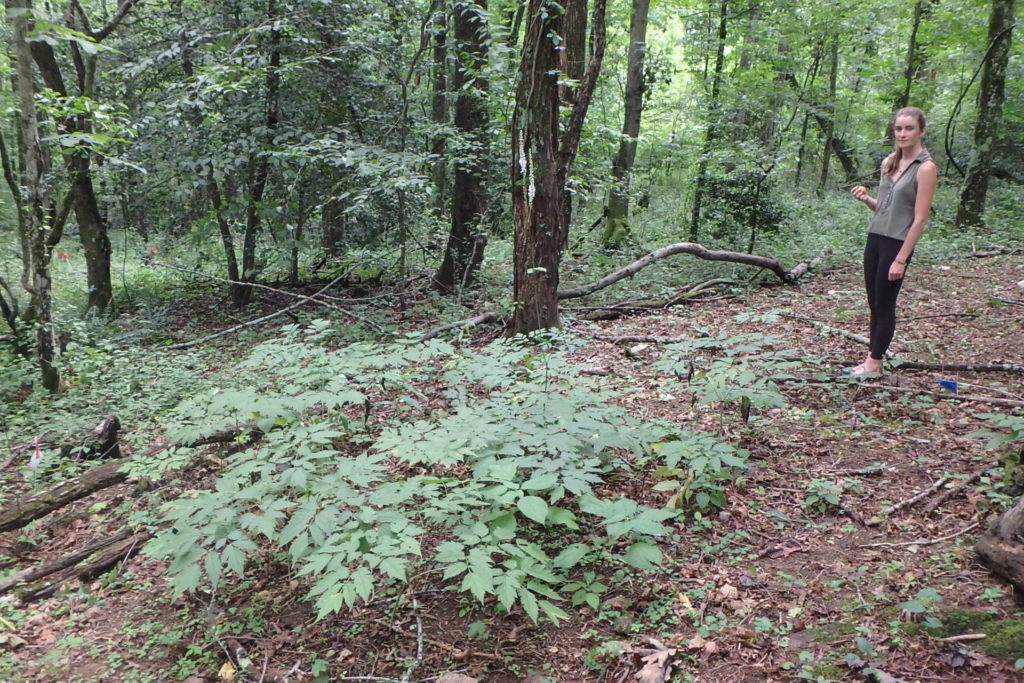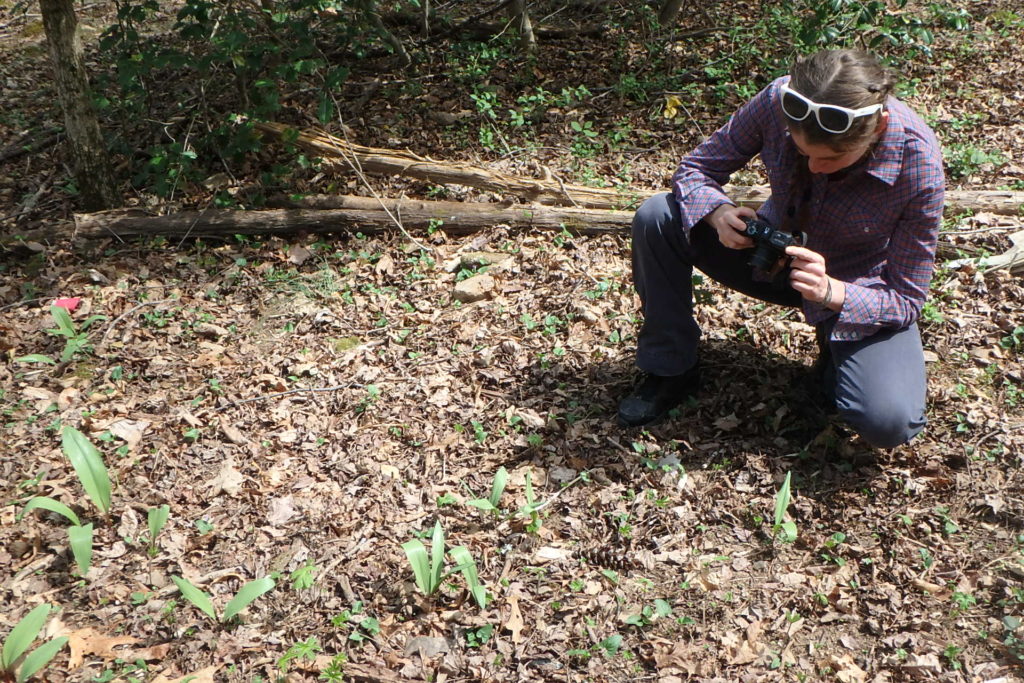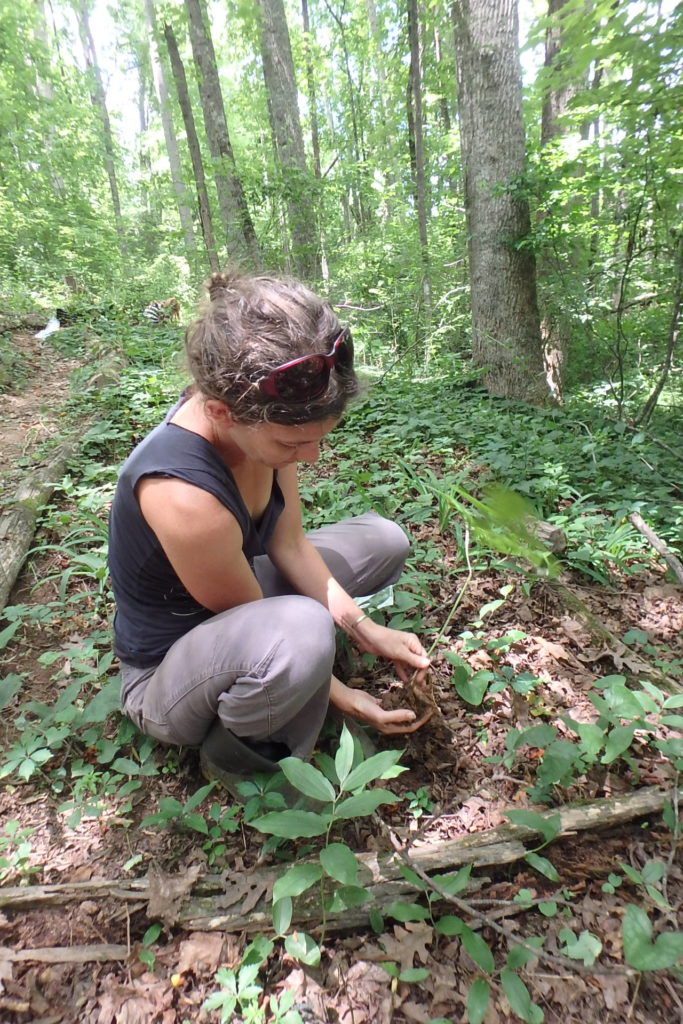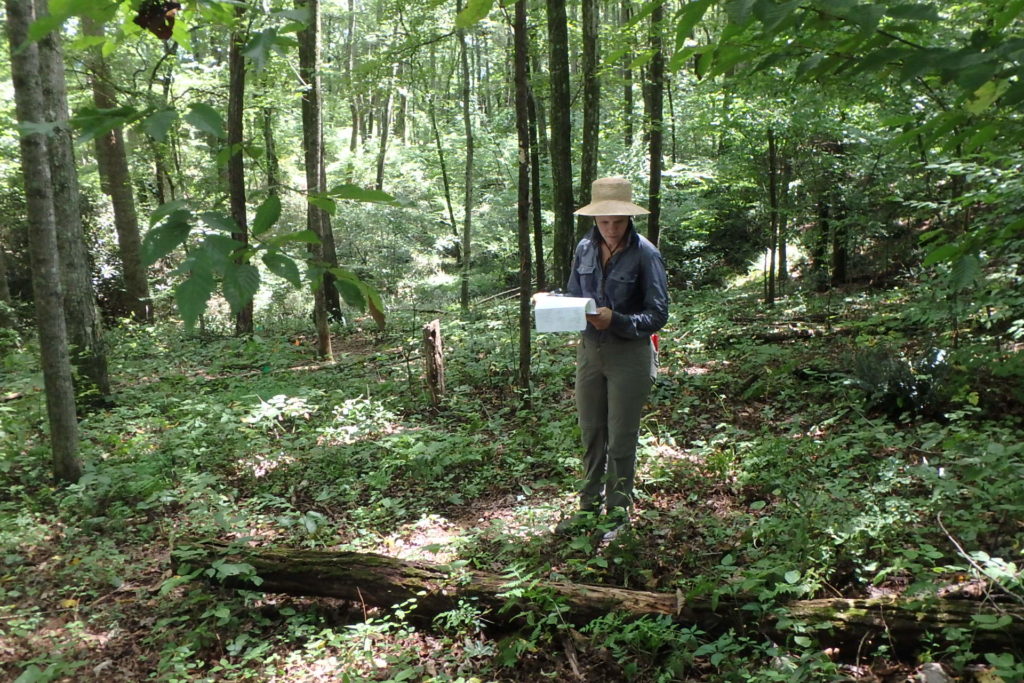Wild-Harvesting Medicinal Herbs-It’s Still the Norm for Many Products
go.ncsu.edu/readext?495042
en Español / em Português
El inglés es el idioma de control de esta página. En la medida en que haya algún conflicto entre la traducción al inglés y la traducción, el inglés prevalece.
Al hacer clic en el enlace de traducción se activa un servicio de traducción gratuito para convertir la página al español. Al igual que con cualquier traducción por Internet, la conversión no es sensible al contexto y puede que no traduzca el texto en su significado original. NC State Extension no garantiza la exactitud del texto traducido. Por favor, tenga en cuenta que algunas aplicaciones y/o servicios pueden no funcionar como se espera cuando se traducen.
Português
Inglês é o idioma de controle desta página. Na medida que haja algum conflito entre o texto original em Inglês e a tradução, o Inglês prevalece.
Ao clicar no link de tradução, um serviço gratuito de tradução será ativado para converter a página para o Português. Como em qualquer tradução pela internet, a conversão não é sensivel ao contexto e pode não ocorrer a tradução para o significado orginal. O serviço de Extensão da Carolina do Norte (NC State Extension) não garante a exatidão do texto traduzido. Por favor, observe que algumas funções ou serviços podem não funcionar como esperado após a tradução.
English
English is the controlling language of this page. To the extent there is any conflict between the English text and the translation, English controls.
Clicking on the translation link activates a free translation service to convert the page to Spanish. As with any Internet translation, the conversion is not context-sensitive and may not translate the text to its original meaning. NC State Extension does not guarantee the accuracy of the translated text. Please note that some applications and/or services may not function as expected when translated.
Collapse ▲(Originally published on November 15, 2017; reviewed and updated on 11/21/2022) A large component of our NC Alternative Crops and Organics Program is devoted to medicinal herbs. Many of these are native forest herbs including ginseng, goldenseal, black cohosh, and bloodroot. The collection and sale of these native herbs have been a part of the life and culture of many mountain families. These herbs are personally used as medicine and as a source of income. The activity of “wild-harvesting”, also referred to as “wild-crafting” and “gathering”, is also a common seasonal outdoor activity for many people who engage in similar forest based sports such as hunting and fishing. There are many herbalists, herb schools, herb product manufacturers, and raw botanical material sourcing companies in our region whose businesses depend on these wild plants.
There are concerns about the conservation of some of these plants and the sustainability of wild-harvesting. In our program, we work with botanists and other forest scientists to study the effects of wild-harvesting on native populations and how cultivation of some of these herbs might reduce pressure on the wild populations. To many people, this would appear to be a “no-brainer”; just grow the plants and leave the wild ones along! But it is not that simple. Here is a link to a recent article entitled “The Wild World of Wildcrafting”. It does of great job of explaining this complicated business and culture.
But at the same time, there are big efforts underway to train more people to be “forest farmers” of native medicinal herbs, mushrooms, and other forest products. One of the biggest projects in the eastern US is the Appalachian Beginning Forest Farmers Coalition of which we are very much engaged. This is a multi-state project with university, non-profit, and business partners. We have a very active role in this project and in the fall of 2017 we held a weekend-long beginning forest farmer workshop at Warren Wilson College in Swannanoa, NC; a weekend-long workshop on value-added forest products at Montreat Conference Center in Montreat, NC; a 2.5 hour workshop on forest farming at the Sustainable Agriculture Conference in Durham, NC; we taught at the Transylvania County Ginseng Workshop in Mills River; and we exhibited at and sponsored the Organic Ginseng Workshop in Marshall, NC. All of these events were well-attended by enthusiastic people looking to generate income by growing native medicinal herbs in their woodlands.
If any of this is of interest to you, I encourage you to take a few minutes to read this article “The Wild World of Wildcrafting” and consider joining the Appalachian Beginning Forest Farmers Coalition .






